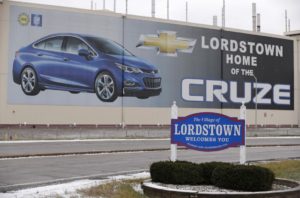
“It was the best of times, it was the worst of times…” So begins the classic line from Dickens’ A Tale of Two Cities. Dickens continues with contrasts such as “it was the spring of hope, it was the winter of despair,” which only adds to the feeling of simultaneous joy and heartache. Such is frequently the train of progress, which provides unprecedented benefits at the next stop, while leaving behind a broken and forever discarded way of life. In the human drama, the only thing constant is change, and change is exactly what we fear the most—if we don’t control the change. And we never do. At best we shape it and try to ride that wild stallion in a somewhat sensible direction. Economist Joseph Schumpeter called the dynamic activity of entrepreneurship as “creative destruction,” and his term is most apropos.
As an economist I can objectively see the massive gains from trade in globalization for all involved. Per capita income in this country has risen over eight-fold in the last century, largely due to innovation and the creative destruction which is concurrent with globalization and international trade. Despite claims to the contrary by politicians, the United States is a manufacturing powerhouse, with over double the output of 35 years ago, yet with far fewer workers. Yet this efficiency comes at a price—no longer can a low-skilled worker expect to easily find a reasonably high-paying blue-collar job leading to a stable, middle-class lifestyle.
Last Monday’s news that GM will shutter production at the Lordstown Complex as part of its plan to reduce 15% of its salaried workforce is simply part of the continuing drama of our modern economic life, and continuing angst for blue-collar workers. We should not try to minimize the pain of the loss to this community’s way of life. When one industry dominates the local area, it is far more than an individual crisis, it is a community crisis. GM’s stated rationale is that they must use this time of relative economic strength to change their product line away from smaller cars toward expected future customer preferences for electric and autonomous vehicles. GM certainly cannot avoid the economic reality that consumers increasingly are going for trucks and sport-utility vehicles in an era of cheaper gasoline. President Trump has responded to this announcement with fury, threatening GM with punitive policies of removing their taxpayer benefits if they don’t bring jobs back. While I applaud his new-found disapproval for taxpayer subsidies, I am troubled that he is seemingly content with giving them to a company that behaves as he desires. And strangely, nowhere does Mr. Trump express any regret for his misguided steel and aluminum tariffs that increase manufacturing costs, especially for U.S. automakers. It is an economic reality that steel tariffs cost far more job loss in steel using industries than jobs gained by those in steel producing industries, and GM’s Lordstown plant is exhibit A, at least in part. Protectionism is never about jobs in general; there are always the privileged few who are protected, at the greater cost to the unprivileged majority. Mr. Trump also expressed his outrage over this decision since GM has been bailed out previously. But let’s recall who was bailed out: not the shareholders, who were basically wiped out, but rather the UAW and the uneconomic cost structure and retiree benefits that GM is still saddled with. Ironically, bailing out the UAW only insured that this day of reckoning for union workers would come; GM’s labor cost structure is still far higher than most of its foreign competitors.
Reports suggest that the future of the Lordstown plant will depend on negotiations with the UAW next year. One can hope that they will respond to the competitive nature of the global automotive environment with a competitive wage structure going forward—a structure that will entice GM to continue production at Lordstown well into the future. And perhaps Mr. Trump will relent on his trade war as the collateral damage continues to pile up. Then perhaps instead of the worst of times, Lordstown will see the best of times. Yes, we can hope.
Edit Update: For a more thoughtful economic analysis, consider Richard Epstein’s post here, where he insightfully critiques President Trump, as “Five minutes of political reflex is not a substitute for thousands of hours of hard work and analysis.”
 Bert Wheeler
Bert Wheeler
 Jeff Haymond
Jeff Haymond
 Marc Clauson
Marc Clauson
 Mark Caleb Smith
Mark Caleb Smith
 Tom Mach
Tom Mach